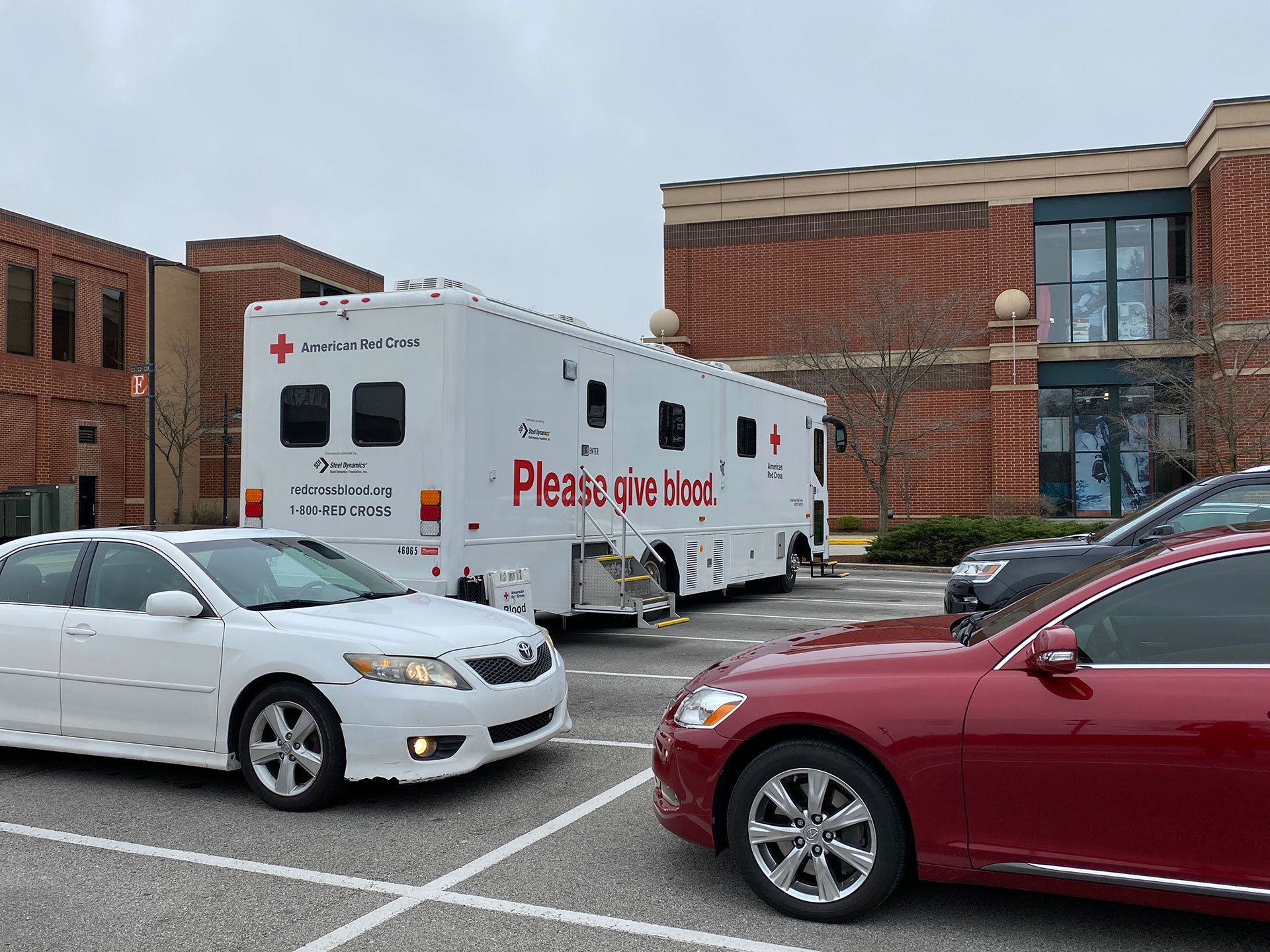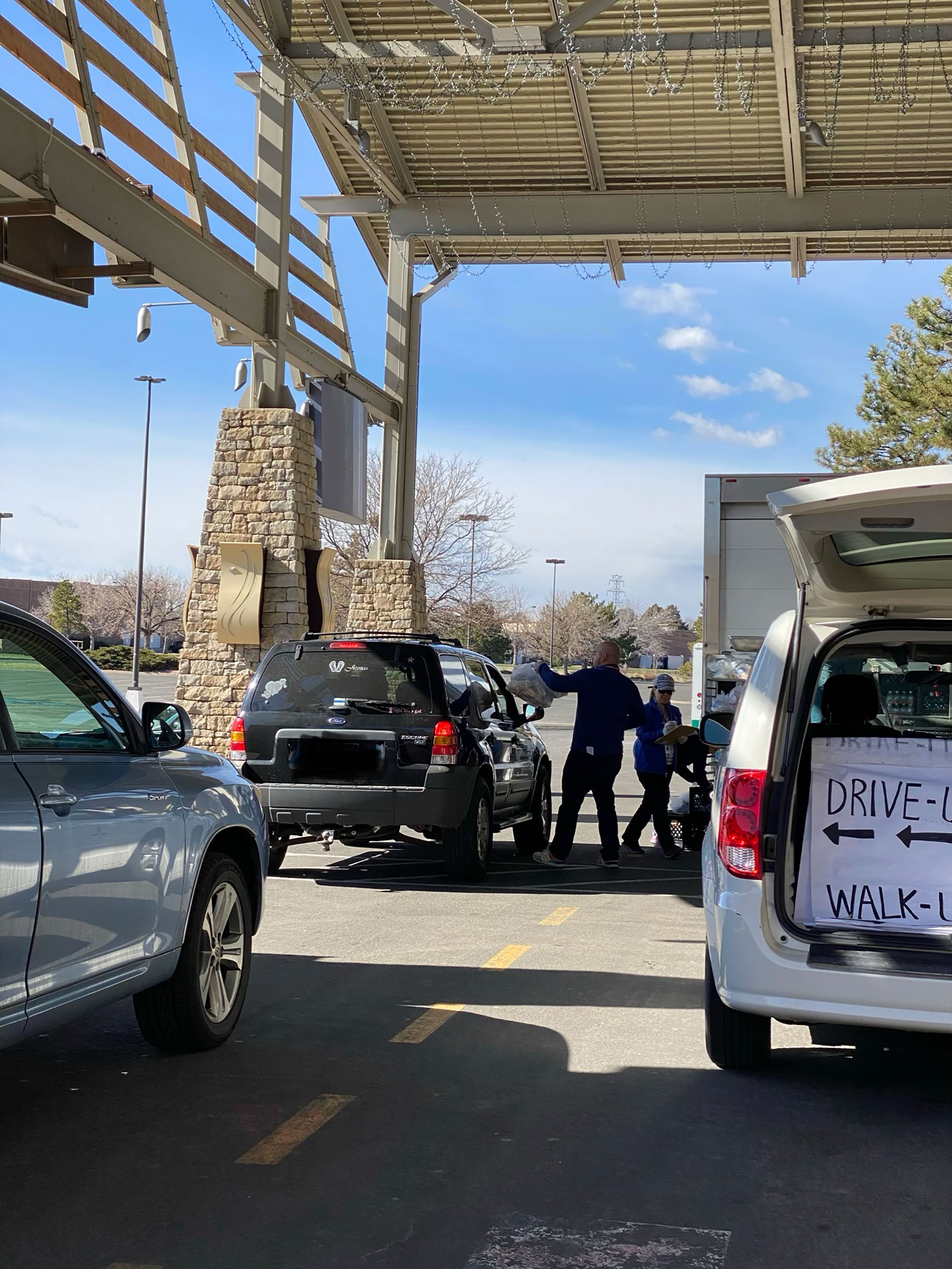As the world hunkers down in an effort to stem the spread of COVID-19, a number of shopping center companies and retailers are springing into action to ease the pain the pandemic is inflicting on many communities.

Washington Prime Group's Clay Terrace lifestyle center in Carmel, Indiana, recently hosted a blood drive to address a shortage spurred by the COVID-19 pandemic
Columbus, Ohio–based Washington Prime Group has already rolled out some 50 philanthropic initiatives nationwide, most of them spearheaded and implemented by the teams that manage its individual properties.
“Federal, state and local government and health officials are implementing unprecedented steps to limit the risk of COVID-19 community spread,” wrote ICSC President and CEO Tom McGee in a letter to President Donald Trump and members of his administration. “America’s shopping center owners, developers and tenants applaud the efforts that are taking place and are eager to support our nation as we confront this public health crisis. ICSC members stand ready to provide parking lots and unoccupied space to stage emergency supplies, facilitate the delivery of food and essential goods to fellow citizens and construct temporary health centers and shelter. Many of our members have already begun supporting local and national efforts, with many more ready to assist immediately.”
Here is a glimpse of what shopping center owners and major retailers are doing to support communities and other stakeholders during the pandemic, all while shuttering some properties to protect public health and keeping others open to meet robust demand for groceries, take-out meals and other essentials.
Blood drives, school lunches and beyond
The pandemic has resulted in an unprecedented blood shortage. According to the American Association of Blood Banks, some 4,000 blood drives have been canceled because of the pandemic. To conserve blood supplies, hospitals across the country are reportedly canceling elective surgeries and reducing the amount of blood they give to patients.
Many shopping centers have stepped up to address this life-threatening shortage by being host to blood drives in partnership with the American Red Cross and other agencies. In late March, for instance, Washington Prime’s Clay Terrace lifestyle center in Carmel, Indiana, held a mobile-unit blood drive organized by a local branch of the American Red Cross. The shopping center also promoted the blood drive through its website and social-media channels.
“Our company is basically comprised of over 100 distinctly local venues,” wrote Louis Conforti, CEO of Washington Prime, in a letter that the general managers of the firm’s properties distributed to local, state and federal agencies working to contain the pandemic. “Each and every one serves a specific demographic constituency, and shame on us if ‘serve’ is exclusively defined as the sale of a good or service. We characterize our assets as town centers and, especially in a time of need, this sure as heck transcends footwear, cosmetics or a lamp.” Conforti noted that the firm’s properties could be used as distribution centers for medical supplies or as temporary facilities to administer COVID-19 tests, among other uses.
The pandemic has created not only dire health and economic consequences, but also a crisis for many American students. As of March 25, about 124,000 schools have closed to help stem the spread of the virus, reports Education Week. The widespread closures have deprived millions of children of instruction, and a significant number of them also of the free or low-cost school meals upon which they depend.

Now that schools are closed, Colorado's Aurora Public Schools distributes free student meals at many sites, including Washington Prime Group's Town Center at Aurora
Washington Prime and Kimco Realty Corp. are among the shopping center owners seeking to combat student hunger. Several Washington Prime properties, including Town Center at Aurora, Colorado, are providing space to local school districts for the distribution of free breakfasts and lunches. Town Center at Aurora, for instance, is one of 16 sites at which the Aurora Public Schools is distributing free meals to students. On a weekly basis, the school district has given away some 21,500 meals at its distribution sites, including about 1,600 at Town Center at Aurora.
Meanwhile, Kimco’s Suburban Square, in Ardmore, Pennsylvania, serves as a distribution center for free meals for students in the Lower Merion School District. Kimco, which is based in Jericho, New York, has also helped promote a partnership between public and nonprofit organizations and PDQ, a Tampa, Florida–based restaurant chain, to provide breakfast and lunch to students in the Dania Beach, Florida, area. PDQ is a tenant at Kimco’s Dania Pointe center.
“A lot of our restaurants and grocery stores are working to fill the need for school lunches,” noted Conor C. Flynn, CEO of Kimco, which is also fast-tracking its approval of drive-through coronavirus testing stations to be operated by urgent-care providers.
Mobile food pantries, too, are cropping up at shopping centers. In Grand Rapids, Michigan, for instance, Woodland Mall, owned by Philadelphia-based PREIT, has been host to a mobile food pantry operated by Feeding America, a nonprofit that serves 46 million people yearly. Yet another PREIT-owned property, the Patrick Henry Mall, in Newport News, Virginia, has teamed up with Cinnabon to deliver cinnamon buns to local health care workers, first-responders and school-system employees serving meals to students affected by the crisis.
“It has been so important to realize that we are all in this together,” said Heather Crowell, executive vice president for strategy and communications at PREIT. “Extending our community beyond our walls is what we are all about, and, at a time like this, it’s critical that we are there for the communities we engage with day in and day out under normal circumstances.”
Support for tenants
Like other landlords, Kimco is also ramping up its efforts to support tenants during the pandemic, which has inflicted widespread economic pain. Sales for some retailers — such as grocery, drugstore and pizza chains — have surged in recent weeks. Yet, the pandemic has hit other merchants brutally hard, especially small businesses that lack the cash reserves to weather a significant drop in sales or store closures. Nearly 70 percent of all shopping center tenants are small businesses that employ fewer than 10 people, according to ICSC.
As in the past, Kimco’s tenants can take advantage of the firm’s longtime partnership with SCORE, a nonprofit network of volunteer business mentors. In addition, Kimco collects information on such small-business resources as U.S. Small Business Administration disaster loans, and the firm has begun working on a case-by-case basis with tenants that may need to modify their lease terms because of the crisis, notes Flynn. “We’re looking at different ways to help some tenants rework their leases to maybe give them some breathing room,” he said.
The front lines
Some retailers are the front lines of the pandemic. Amid booming demand for groceries and other essential goods and services, some are hiring legions of displaced workers and/or making generous donations to groups responding to the COVID-19 outbreak. Walmart and its philanthropic arm, the Walmart Foundation, have committed some $25 million to assist front-line organizations, including international efforts to prevent, detect and manage COVID-19, as well as to food banks and school-meal programs.
In late March Giant Eagle, one of the country’s largest food retailers and distributors, announced that its employees, including warehouse workers and delivery drivers, would receive a total of $10 million in bonus pay as they worked through the pandemic. The company, based in the Philadelphia suburb of O’Hara, is also providing temporary work to PPG Paints Arena workers and others whose employment has been hurt by event cancellations and restrictions on dine-in services.
“In times of need, we see communities come together to do extraordinary things,” said Kathleen McLaughlin, executive vice president and chief sustainability officer at Walmart and president of the Walmart Foundation. “This pandemic is no different.”
By Anna Robaton
Contributor, Commerce + Communities Today


